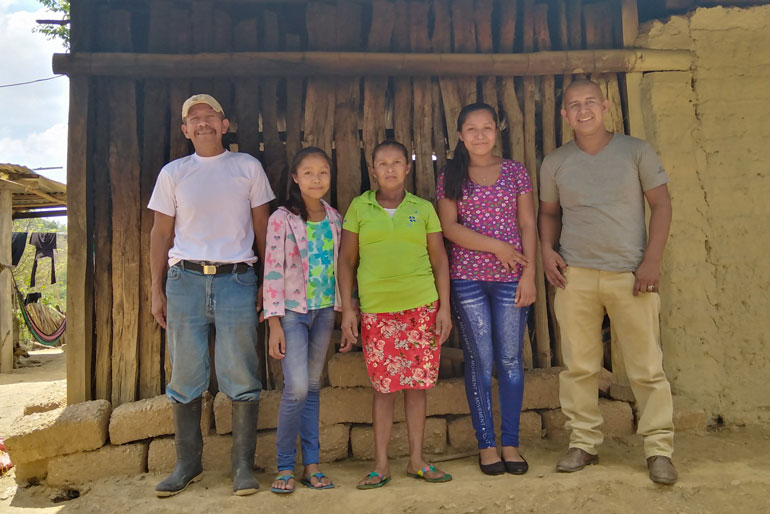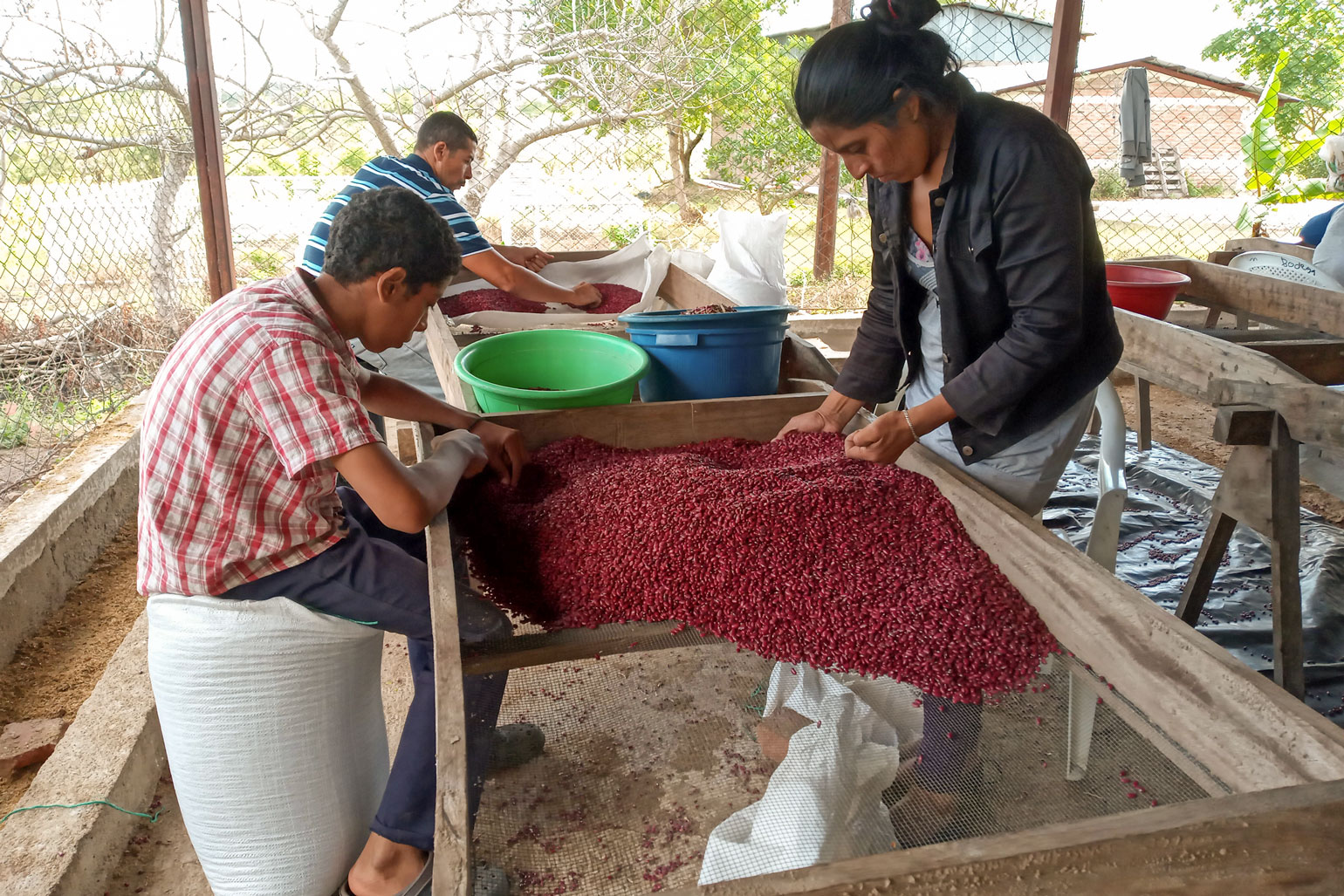Farmers working together to resist market exploitation in Nicaragua
July 16, 2021Imagine being a farmer, unable to get your goods to market.

COVID-19 travel restrictions meant it was almost impossible for Porfiria Guerrero Salgado and Reynaldo Matey Guerrero to get their harvest to the cities.
Porfiria and Reynaldo are farmers living in a drought-prone region of Nicaragua called the Dry Corridor. They are members of the Chorotega people, an Indigenous group spanning the areas now known as Honduras, Nicaragua, and Costa Rica, and one of seven Indigenous groups in Nicaragua. For Porfiria, Reynaldo and their children—Alba, Reyna and Santos—farming is everything. Through hard work and dedication, the family succeeds most years in growing the vegetables and beans they need for food, despite harsh climatic conditions. The modest surplus they send to distant cities, via resellers, is their main source of income.
When the pandemic began, resellers started paying less than usual for Porfiria and Reynaldo’s harvest. They also started overcharging at the market, making it difficult for urban families to afford food. Porfiria and Reynaldo started wondering if their hard work growing food for urban families was even worth it…
In situations like these, your support can make a world of difference.
Thanks to support from SeedChange donors, Porfiria, Reynaldo and other Indigenous farmers from their community joined forces to create their own direct channel to the cities. With the help of our local partner organization, the Federation of Cooperatives for Development (FECODESA), they set up 10 sales stands—called despensas, or “pantries”—in different municipalities last fall.

The despensas sell food at a price that’s fair to both farmers and urban families. Porfiria, Reynaldo and their neighbours sent more than 9,000 kilograms of beans to the city via the despensas, earning 15 to 20 per cent more than they would have with resellers. By working together, these farmers are able to resist market exploitation in Nicaragua.
Now farmers are getting a fair income, and urban families are getting healthy food they can afford. In addition, the despensas created approximately 20 new jobs for women from the farming communities!
Initiatives like the despensas couldn’t emerge without the support of people like you. Will you join us to support farmers in resisting exploitation?
Please consider setting up a monthly donation. It’s a simple and powerful way to grow a better world.
You can help farmers resist exploitation
All around the world, small-scale farmers like Porfiria and Reynaldo are vulnerable to market exploitation and price volatility. The pandemic continues to make things worse. Just a little bit of support from someone like you can free farmers from the vicious cycles that keep them locked in poverty, and prevent others from having the food they need. The despensa project is a powerful example.
With these 10 despenas, our partner FECODESA is supporting food sovereignty in rural and urban Nicaragua. Food sovereignty, a community’s right to healthy, sustainable and culturally appropriate food, produced through their self-defined food and agriculture systems, is key to having a truly fair and equitable food system.